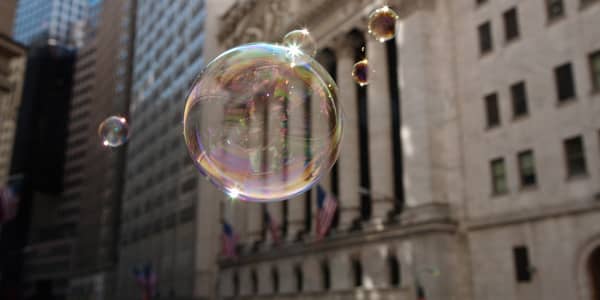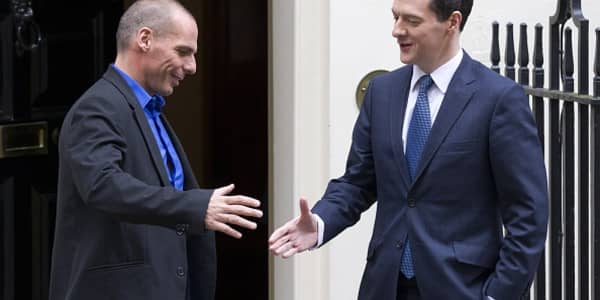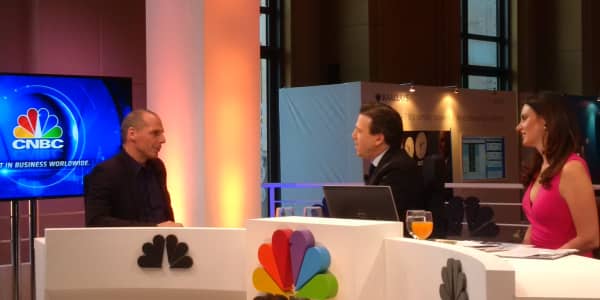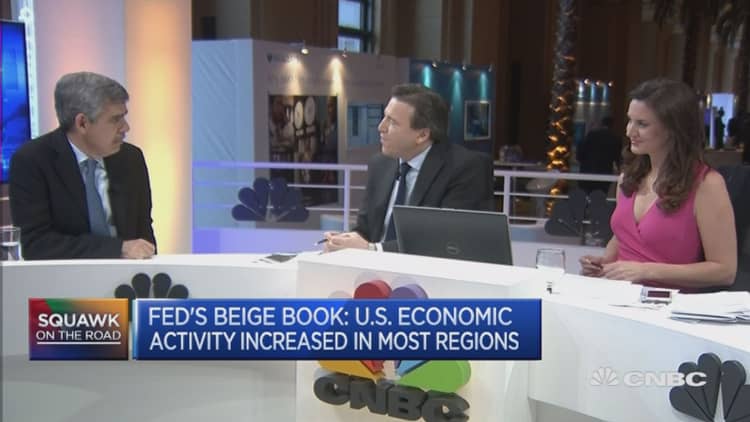
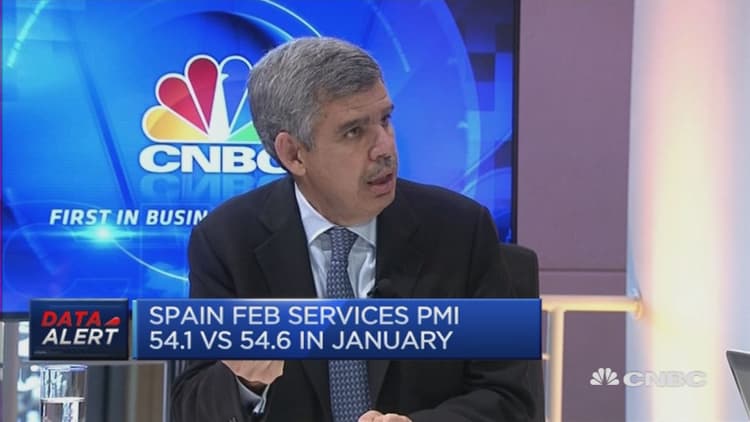
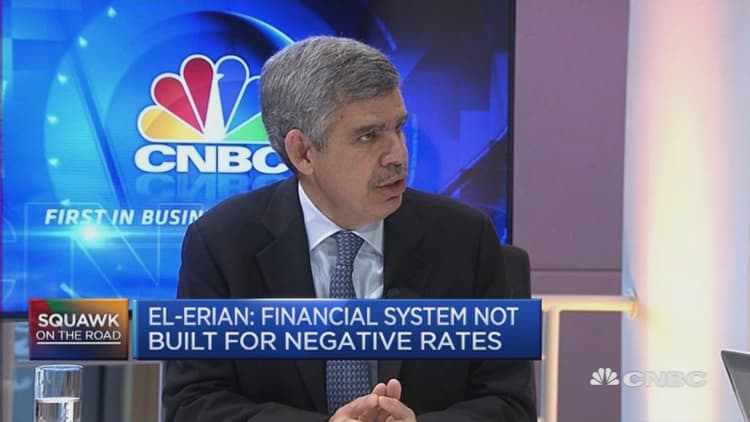
The U.S. economy faces headwinds from weaker global growth and financial market instability and may slow as a result, Mohamed El-Erian, chief economic adviser at Allianz, told CNBC on Thursday.
"Either we get a handoff to something much better or the U.S. will slow and that is still an open question," the former co-chief executive of Pimco said at the Global Financial Markets Forum in Abu Dhabi.
El-Erian added that Wall Street has yet to price in increased political uncertainty stemming from the rise of protest politics in the U.S. and Europe.
Stateside, this trend has seen Donald Trump emerge as the front-runner to be Republican presidential candidate and Bernie Sanders challenge Hillary Clinton for the Democrat nod. Meanwhile, the British Labour Party has pushed to the left and the anti-immigration U.K. Independence Party has been a major influencing factor in the ruling Conservative party's decision to hold a referendum on its membership of the European Union.
"The emergence of these nontraditional parties, the anti-establishment parties, adds to uncertainty," El-Erian said. "Markets in the U.S. haven't priced that yet; it is a new phenomenon. It hasn't been priced in yet, but I think that there is an uncertainty premium that is going to come from the political side."
He said that markets' delayed response was due to traders and investors' difficulty in interpreting Trump's success.
"I think the hardest thing for the markets to assess — and that is why you don't see the premium — is, how do you have a front-runner that doesn't have the backing of his party?" he said.
El-Erian forecast that the U.S.'s flagship nonfarm payroll labor market report for February, out on Friday, would show "relatively robust" employment creation and wage growth. According to Thomson Reuters, the report is expected to show that 190,000 jobs were created in February and that the unemployment rate remained at 4.9 percent.
El-Erian added that the Federal Reserve was still looking for "every opportunity" to raise interest rates and would do so at least twice in 2016.
This would follow the Fed high-profile hike in December after holding its benchmark rate at historic lows near zero percent for seven years.
"When we first started unconventional policy, Chairman [Ben] Bernanke reminded us — this is in August 2010 — that it's about benefits, costs and risks. And if you go too far for too long, the benefits go down and the costs and risks go up and I think central bankers realise that," El-Erian said.
He said that unconventional monetary stimulus could prove counterproductive, highlighting Japan's introduction of negative interest rates in January.
"At some point you get the perverse reaction. I don't think the Bank of Japan ever imagined that by going negative, the yen would strengthen rather than weaken and the equity market would sell off rather than rally. But that is what happened, because if you go beyond a certain point, people say this is not credible anymore," he said.
El-Erian quit Pimco in 2014 amid ugly headlines blaming conflict with Bill Gross, a co-founder of the investment management giant. El-Erian recently published a book entitled "The Only Game in Town: Central Banks, Instability, and Avoiding the Next Collapse."
— By CNBC's Katy Barnato at the Global Financial Markets Forum in Abu Dhabi.






